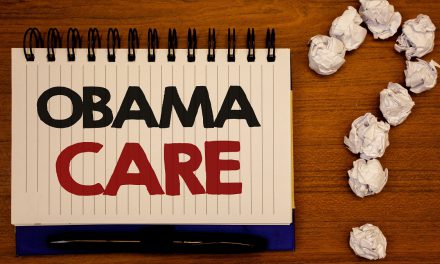Last year, Missouri expanded Medicaid coverage guidelines to include an estimated more than 275,000 newly eligible adults. The new requirements allow for those who have previously fallen through the cracks to now receive low-cost or even free coverage for routine services, emergency care, mental health care, addiction services, and more. However, Missouri’s fumbled expansion rollout created confusion, resulting in tens of thousands of now eligible adults to believe they still aren’t covered for the care they deserve.
For the newly enrolled Missourians who have taken advantage of the changes, Medicaid through MO HealthNet has proven to be a dream come true. Patients avoiding care due to fear of the hospital bill are now able to comfortably manage their health. Improved individual investment in patient health also eases burdens on health providers, both by improving illness and injury overall and by retaining emergency resources and subsequent costs.
HCC Network Community Health Worker Shelly Harden helps combat the confusion surrounding Medicaid by educating communities in rural Missouri about the new guideline changes. As a certified application counselor, Harden also assists patients applying for Medicaid, food stamps, and Social Security Disability, as well as provides resources such as legal aid.
The Wait for Affordable Care Is Over
Since the expansion, Harden has seen an influx of patients eager to enroll in Missouri Medicaid. “I have had several clients that have just been waiting to get approved for the expansion because they have been having long-term medical conditions that they haven’t been able to get in and get care for,” she said. “Being able to have insurance and have those issues treated or even diagnosed is tremendous.”
According to Harden, many patients have put off various tests and procedures against doctor’s suggestions simply due to financial concerns. Delaying routine and especially urgent exams and procedures can lead to long-term complications, eventually worsening the financial burden as well as adding stress.
When the barrier to affordable health insurance is removed, doctors are able to care for their patients consistently, knowing their patients are going to show up and follow through with routine medicine and recommendations. This lessens the risk of negative health outcomes while allowing hospitals and health facilities to reserve more emergency resources and funds for future crises, a pertinent concern as the COVID-19 pandemic continues to overwhelm local hospitals.
“I feel that Medicaid expansion is good for the community as a whole,” Harden said. “Whether it be for those of us who already have insurance or those who need insurance, it’s a win-win for everyone, health-wise and expense-wise.”
What Has Changed?
Eligibility for Medicaid through MO HealthNet depends on your income, age, health, and individual needs. You may be eligible if you are a(n):
- Parent or caretaker with a child (under age 19).
- Woman (age 19-55) with no health insurance.
- Adult (age 19-64) without disabilities.
- Woman (under age 65) with breast or cervical cancer.
- Person with disabilities.
- Blind or visually impaired adult.
Though Medicaid has made an enormous positive impact on those who have enrolled, Harden believes many Missouri residents are still unaware of the changes. “They still have it in their mindset that they’re not eligible, that they’ve never been eligible because they’re not pregnant or they don’t have kids or they’re in that bracket that has before fallen through the cracks,” she said. “We need to get out there and educate them to let them know it is an opportunity for them to get the insurance that they deserve, need, and are eligible for.”
High insurance costs have made many young working adults especially hesitant to seek care. Fear of medical debt shouldn’t prevent hard-working people from knowing they will be covered in case of an emergency, be able to afford medications, or proactively invest in their health.
“The more appointments in preventative visits we can do to help our community, the less cost you will see in emergency rooms (ER) and urgent care centers,” said Harden. “Access to affordable insurance prevents more serious conditions and ER visits because patients are able to go see their doctors on a regular basis and be more proactive in their care and do preventative care.”
Even for those who are in good health and don’t require frequent tests or procedures, Harden recommends enrolling in Medicaid to receive routine care. Preventative care, including some of the services covered by Medicaid, help patients continue healthy lifestyles while monitoring for sudden changes or concerns.
Examples of services covered by Missouri Medicaid through MO HealthNet include:
- Primary, acute and preventive care.
- Inpatient hospital care.
- Outpatient hospital services, including diagnostic services rendered through a hospital outpatient department or clinic.
- Laboratory and x-ray services when prescribed by a physician, and provided by either physicians, clinics, x-ray facilities, or laboratories.
- ** Physical, occupational and speech therapy.
- ** Dental, hearing and vision care.
- ** Home and community-based services such as nursing and personal care.
- Medical equipment and supplies.
- * Non-emergency medical transportation.
- Pharmacy.
- ** Mental health services such as outpatient counseling and inpatient psychiatric treatment.
* Not available to children in higher income families receiving MO HealthNet for Kids.
** Services are limited for adults age 21 and over.
Medicaid Expansion Throughout the U.S.
To date, 39 states have adopted Medicaid expansion, including Missouri and Oklahoma in 2021. The two states saw similar potential but have so far experienced vastly different outcomes in terms of enrollment. While both estimated over 200,000 newly eligible residents, only one managed to near their target since the expansion passed. Oklahoma has enrolled over 210,000 of their 215,000 newly eligible residents; Missouri has enrolled less than 20,000 of 275,000 newly eligible residents.
Oklahoma’s success is largely in part due to its immediate funding and opening of applications coupled with a robust marketing campaign. The combination led to 113,000 enrollments in the first month – more than half their goal in reaching newly eligible residents.
Though Missouri’s rollout was delayed due to funding and political hold-ups, Harden believes the slow start will eventually pick up. The only down side she’s seen thus far has been the back-up in application processing time, an inconvenient but arguably good problem to have in the grand scheme.
“The main negative is just how long it’s taking for the applications to be processed,” she said. “I know Family Support Division (FSD) is being bombarded with applications, but I still feel for the many people in the community who so desperately could benefit from their coverage. On the other hand, those approved or who will be approved is such a positive because they can get the care they need, not only for the urgent issues, but for the preventative visits as well.”
To date, none of the states that have expanded Medicaid have repealed the decision, due to its widespread success. As Kansas considers implementing Medicaid expansion through KanCare, Harden urges providers and individuals alike to continue spreading awareness and education about the positive impact it will have on Missouri’s neighbors.
“Continue to talk about it,” she said. “Continue to educate the community about how so many people could benefit from this so that more people will get out and vote to pass it for Kansas.”
Get the Care You Deserve – Enroll Today!
For assistance enrolling in Missouri Medicaid through MO HealthNet, contact Shelly Harden at 660.214.2869. HCC Network operates several health clinics throughout Missouri with community health workers such as Harden who are available by appointment to assist with questions and applications.
“We’ll help them through the application, we’ll answer any questions they have, we’ll get the application to the state, and we’ll continue to follow through with it until there’s a decision on the application,” Harden said. “If there’s any other information or proof they need to send in, we can help them with that. It is a big opportunity for those who normally wouldn’t get insurance to be able to obtain that now.”
Applications are also available in Spanish and with the help of an interpreter. Contact FSD at 855.373.9994 for more information and assistance.
Listen to Harden discuss the impact she’s seen Medicaid expansion have in Missouri in her interview for the HCC podcast. For more information about applying for Missouri Medicaid through MO HealthNet, visit https://hccnetwork.org/health-care-access/.
Help spread the word about Missouri Medicaid expansion! HCC Network has partnered with Grace Advertising to develop an outreach toolkit to help raise awareness about the new eligibility guidelines and services offered under Missouri Medicaid through MO HealthNet. The free-to-use toolkit features social media graphics and messaging in English and Spanish. Access the toolkit here.








